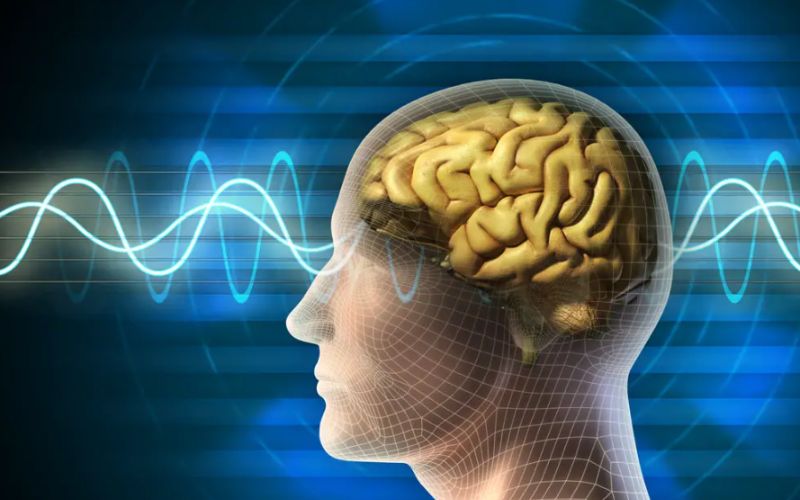Introduction: Brain Fog and Its Causes in Brain Function
Brain fog is a term used to describe a state of mental confusion or lack of clarity. It is characterized by symptoms such as difficulty concentrating, memory problems, and a feeling of mental fatigue. Many people experience brain fog at some point in their lives, and it can be caused by a variety of factors. One common cause of brain fog is stress. When we are under stress, our bodies release hormones that can affect our brain function. This can lead to difficulty focusing and remembering things. Lack of sleep is another common cause of brain fog. When we don’t get enough sleep, our brains don’t have enough time to rest and recharge, which can result in mental fatigue and difficulty concentrating.
Poor nutrition can also contribute to brain fog. Our brains need a variety of nutrients to function properly, and a diet lacking in these nutrients can lead to cognitive problems. Additionally, a sedentary lifestyle can negatively impact brain function. When we don’t get enough physical activity, our brains don’t receive the necessary blood flow and oxygenation, which can impair cognitive function.
The Importance of Brain Function in Daily Life
Brain function is crucial for daily activities such as work, school, and social interactions. Without proper brain function, it can be difficult to concentrate on tasks, remember important information, and make decisions. Poor brain function can also affect our mood and overall well-being.
In the long term, poor brain function can lead to cognitive decline and memory loss. As we age, our brains naturally undergo changes that can affect our cognitive abilities. However, certain lifestyle factors, such as chronic stress, lack of sleep, and poor nutrition, can accelerate these changes and increase the risk of cognitive decline and memory loss.
It is therefore important to prioritize brain health and take steps to improve and maintain brain function. Fortunately, there are natural ways to boost brain function that are safe and effective.
Natural Ways to Boost Brain Function
Natural brain-boosting techniques involve making lifestyle changes that support overall brain health. These methods are preferable to artificial ones because they are sustainable and have fewer potential side effects. Additionally, natural methods often have additional benefits for overall health.
One of the benefits of natural brain-boosting techniques is improved overall health. For example, regular exercise not only improves brain function but also has numerous physical health benefits, such as weight management, improved cardiovascular health, and reduced risk of chronic diseases. Similarly, a healthy diet that includes brain-boosting foods can improve not only brain function but also overall nutrition and well-being.
Another benefit of natural methods is the reduced risk of side effects. Many artificial brain-boosting techniques, such as medications and supplements, can have unwanted side effects. Natural methods, on the other hand, are generally safe and well-tolerated when practiced correctly.
Exercise and Brain Health: How Physical Activity Enhances Cognitive Function
Exercise is one of the most effective natural ways to boost brain function. When we engage in physical activity, our heart rate increases, which leads to increased blood flow and oxygenation to the brain. This can improve cognitive function, including memory, attention, and problem-solving skills.
Aerobic exercise, such as running or swimming, is particularly beneficial for brain health. It increases the production of neurotrophic factors, which are proteins that promote the growth and survival of neurons. Strength training exercises, such as weightlifting or yoga, can also improve brain function by increasing blood flow to the brain and promoting the release of endorphins, which are chemicals that improve mood and reduce stress.
Incorporating exercise into daily routine can be as simple as taking a walk during lunch breaks or using the stairs instead of the elevator. It is recommended to aim for at least 150 minutes of moderate-intensity aerobic exercise per week, along with strength training exercises at least twice a week.
The Role of Nutrition in Brain Function: Foods That Boost Cognitive Performance
Nutrition plays a crucial role in brain function. Our brains require a variety of nutrients to function properly, including omega-3 fatty acids, antioxidants, and vitamins and minerals. A diet lacking in these nutrients can lead to cognitive problems and poor brain function.
Foods that are known to boost cognitive performance include fatty fish, such as salmon and sardines, which are rich in omega-3 fatty acids. Omega-3 fatty acids are essential for brain health and have been shown to improve memory and cognitive function. Other brain-boosting foods include berries, which are rich in antioxidants that protect the brain from oxidative stress, and leafy greens, which are high in vitamins and minerals that support brain function.
Incorporating brain-boosting foods into daily diet can be as simple as adding a handful of berries to breakfast cereal or including leafy greens in salads or stir-fries. It is recommended to aim for a balanced diet that includes a variety of fruits, vegetables, whole grains, lean proteins, and healthy fats.
The Benefits of Hydration for Brain Health
Hydration is another important factor for brain health. Our brains are made up of about 75% water, and even mild dehydration can impair cognitive performance. When we are dehydrated, our brains don’t receive enough water to function properly, which can lead to symptoms such as difficulty concentrating, fatigue, and headaches.
It is recommended to drink at least 8 cups (64 ounces) of water per day, although individual needs may vary depending on factors such as age, activity level, and climate. In addition to water, other fluids such as herbal tea and low-sugar fruit juices can contribute to hydration.
To stay hydrated throughout the day, it is helpful to carry a water bottle with you and sip on it regularly. It can also be beneficial to drink a glass of water before meals and snacks to ensure adequate hydration.
The Power of Sleep: How Restful Sleep Improves Brain Function
Sleep is essential for brain function and overall health. During sleep, our brains consolidate memories, repair neural connections, and remove toxins. Without enough restful sleep, our brains don’t have the opportunity to perform these important functions, which can result in cognitive problems and poor brain function.
The recommended amount of sleep for adults is 7-9 hours per night, although individual needs may vary. Children and teenagers generally require more sleep, with recommended amounts ranging from 9-12 hours depending on age.
To improve sleep quality, it is helpful to establish a bedtime routine that includes relaxing activities such as reading or taking a warm bath. It is also important to create a sleep-friendly environment by keeping the bedroom cool, dark, and quiet. Avoiding electronic devices before bed can also improve sleep quality, as the blue light emitted by these devices can interfere with the production of melatonin, a hormone that regulates sleep.
Mindfulness and Meditation: Techniques for Enhancing Brain Function
Mindfulness and meditation are techniques that can improve brain function and overall well-being. Mindfulness involves paying attention to the present moment without judgment, while meditation involves focusing the mind on a specific object or activity.
Both mindfulness and meditation have been shown to increase gray matter in the brain, which is associated with improved cognitive function. They can also reduce stress and anxiety, which can negatively impact brain function.
Incorporating mindfulness and meditation into daily routine can be as simple as setting aside a few minutes each day to practice. This can involve sitting quietly and focusing on the breath, or engaging in activities such as yoga or tai chi that promote mindfulness and meditation.
The Impact of Stress on Brain Function and How to Manage It
Stress can have a negative impact on brain function. When we are under stress, our bodies release hormones such as cortisol, which can impair memory and cognitive function. Chronic stress can also lead to long-term changes in the brain that increase the risk of cognitive decline and memory loss.
Managing stress is therefore crucial for maintaining brain health. There are several techniques that can help reduce stress, such as deep breathing, progressive muscle relaxation, and engaging in activities that promote relaxation and well-being, such as listening to music or spending time in nature.
It is also important to identify and address the underlying causes of stress. This may involve making lifestyle changes, seeking support from friends or family, or seeking professional help from a therapist or counselor.
Brain-Boosting Supplements: What to Consider and Which Ones to Try
Brain-boosting supplements are another option for improving brain function. There are many supplements on the market that claim to enhance cognitive performance, but it is important to approach them with caution.
Before trying any supplements, it is recommended to consult with a healthcare professional to ensure they are safe and appropriate for your individual needs. It is also important to choose supplements from reputable brands that have been tested for quality and purity.
Some common supplements for brain health include omega-3 fatty acids, which are essential for brain function and have been shown to improve memory and cognitive performance. Ginkgo biloba is another popular supplement that has been used for centuries to improve cognitive function. Other supplements that may have potential benefits for brain health include vitamins B12 and D, magnesium, and curcumin.
Brain Games and Mental Stimulation: How to Keep Your Brain Sharp
Engaging in mental stimulation and playing brain games can help keep the brain sharp and improve cognitive function. Mental stimulation involves challenging the brain with activities that require thinking, problem-solving, and memory.
Brain games, such as puzzles, crosswords, and memory games, can improve cognitive function by increasing neural connections and promoting the growth of new neurons. Other activities that promote mental stimulation include reading, learning a new skill or language, and engaging in creative activities such as painting or playing a musical instrument.
Incorporating mental stimulation into daily routine can be as simple as setting aside a few minutes each day to engage in brain games or reading. It is also helpful to vary the types of activities to challenge different areas of the brain.
Conclusion:
Incorporating natural brain-boosting techniques into your daily routine can have numerous benefits for brain function and overall health. By prioritizing exercise, nutrition, hydration, sleep, mindfulness, stress management, supplements, and mental stimulation, you can improve cognitive function, memory, and overall well-being.
It is important to remember that these techniques are not a quick fix and require consistency and commitment. However, with time and practice, you can experience significant improvements in brain function and enjoy a sharper mind and better quality of life. So why not start incorporating these natural brain-boosting techniques into your daily routine today? Your brain will thank you!







